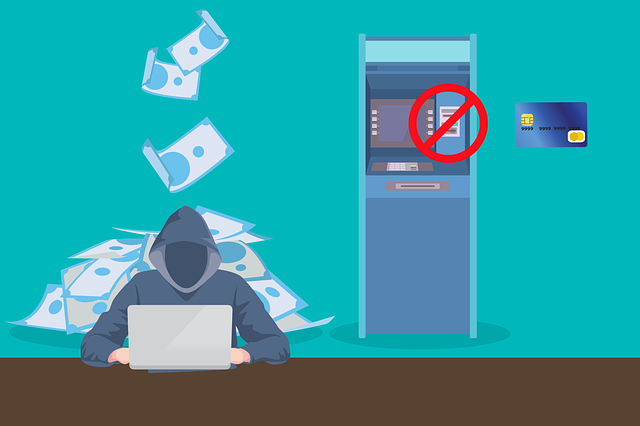Student housing markets are vulnerable to scams like fraudulent listings with unrealistically low rent and advance fee schemes. To avoid these, students should:
– Scrutinize listings for red flags like unusually low prices or urgent requests.
– Verify landlords independently using online databases and official resources.
– Be cautious of sharing personal information online and double-check landlord details.
– Carefully review contracts, ask questions, and prioritize transparency with landlords.
– Leverage trusted resources, cross-reference details, and avoid unconventional payment methods to recognize and avoid scams, ensuring safe college renting.
Navigating the student housing market can be a minefield of scams and fraud. With rising costs and limited options, understanding common rental scams is essential for safeguarding your financial well-being. This guide provides practical tips on recognizing red flags in listings, verifying landlords and properties, protecting personal information, negotiating contracts wisely, and accessing reliable resources for safe college renting. Stay informed to avoid rental fraud and secure your perfect student home.
- Understanding Common Student Housing Scams
- How to Recognize Red Flags in Rental Listings
- Verifying Landlords and Properties Legitimately
- Protecting Your Personal Information During Searches
- Negotiating Terms and Contracts Wisely
- Resources for Safe College Renting
Understanding Common Student Housing Scams

Student housing markets can be bustling with opportunities, but they’re also notorious for various scams and frauds designed to take advantage of eager students. Understanding common rental scams is the first step in securing a safe and legitimate place to live while pursuing your education. One of the most prevalent scams involves fraudulent listings that appear on popular student housing platforms. Scammers create fake listings, often mimicking real properties, and lure unsuspecting students with incredibly low rent prices or seemingly perfect locations. They may even go as far as falsifying reviews from previous tenants to make their scam more convincing.
Another common tactic is the advance fee scam, where scammers ask prospective tenants to pay a significant upfront deposit or first month’s rent through wire transfer or cryptocurrency before they’ve even seen the property. Once the money is sent, the scammer disappears, leaving the student without a place to live and out the financial loss. To avoid these traps, students should always be cautious when encountering deals that seem too good to be true. It’s advisable to verify listings independently, contact landlords directly, and never wire funds or share sensitive information until you’ve physically seen the property and confirmed its legitimacy.
How to Recognize Red Flags in Rental Listings

When browsing rental listings for student housing, it’s crucial to stay vigilant and watch out for common red flags that may indicate a scam. One of the first things to look out for is unusually low rent prices that seem too good to be true; if a listing offers a significantly lower price than others in the area, it might be a warning sign. Be cautious of listings with vague or incomplete information, such as missing details about the property, landlord, or terms of lease. Lack of transparency could suggest a scammer trying to avoid scrutiny.
Another red flag is pressure for an immediate decision or payment. Legitimate landlords typically give potential tenants time to consider the rental and may even allow viewings before asking for a deposit. If a listing demands prompt action without providing opportunities to verify the property’s legitimacy, it might be a scam aimed at trapping desperate students. Always remember that legitimate landlords respect boundaries and offer clear communication throughout the renting process.
Verifying Landlords and Properties Legitimately

When searching for student housing, it’s crucial to verify both landlords and properties to avoid rental scams college often encountered. Start by requesting detailed information about the property owner or management company. Reputable managers will gladly provide contact details, including phone numbers, email addresses, and sometimes even physical office locations. Check these sources independently to ensure they are legitimate.
Next, cross-reference the listings with online databases designed to combat avoiding rental fraud. Many cities and universities maintain resources for students, offering tips on safe college renting and helping to identify known student housing scams. By combining these efforts, you can significantly reduce the risk of falling victim to fraudulent schemes and find a secure place to call home during your studies.
Protecting Your Personal Information During Searches

When searching for student housing, it’s natural to share personal information online. However, it’s crucial to be cautious about how much data you divulge and to whom. Scammers often use this initial interest to gain access to sensitive details like your name, address, social security number, and financial records. Stick to trusted platforms and always verify the legitimacy of a property or listing before providing any personal information. Remember, reputable landlords will never ask for cash upfront or sensitive data via unsecure methods.
To stay safe during your college rental search, be wary of unexpected requests, urgent deadlines, or deals that seem too good to be true. Double-check the contact details of potential landlords and research their reviews online. Trust your instincts; if something feels off, it probably is. Protecting yourself from rental scams begins with staying informed and being diligent in your search for safe and legitimate college housing options.
Negotiating Terms and Contracts Wisely

When navigating student housing markets, especially online, it’s crucial to approach rental contracts with caution. Scammers often target students looking for affordable housing with promises of luxurious living or unusually low prices. Recognize scams by scrutinizing terms and conditions closely. Avoid signing anything without fully understanding the commitment. Seek clarification on details like rent amount, deposit requirements, and any additional fees. Legitimate landlords will readily provide detailed documentation, so red flags like vague language or pressure tactics are warning signs of potential rental fraud.
To ensure safe college renting, negotiate wisely. Don’t be afraid to ask questions or seek second opinions. Verify the landlord’s identity and property ownership through official records if possible. Research the area for comparable rental rates to ensure the deal is fair. Remember, legitimate landlords value long-term tenants and clear communication, so a transparent and respectful negotiation process should be the norm in student housing markets.
Resources for Safe College Renting

When navigating the complex world of college housing, students must be vigilant to avoid rental scams. The internet and social media platforms can be breeding grounds for fraudulent listings, fake ads, and deceptive practices. To stay safe, students should utilize trusted resources and follow best practices when searching for student housing.
Start by relying on official university channels or reputable off-campus housing search engines known for screening listings to ensure legitimacy. Cross-reference details with local tenant advocacy groups or government agencies that specialize in consumer protection. Additionally, always verify the landlord’s identity, read rental agreements carefully, and never pay rent or deposit via unconventional methods or wire transfers. Recognizing red flags like urgent requests for payment, unrealistic offers, or evasive landlords is crucial to protecting yourself from potential scams.
